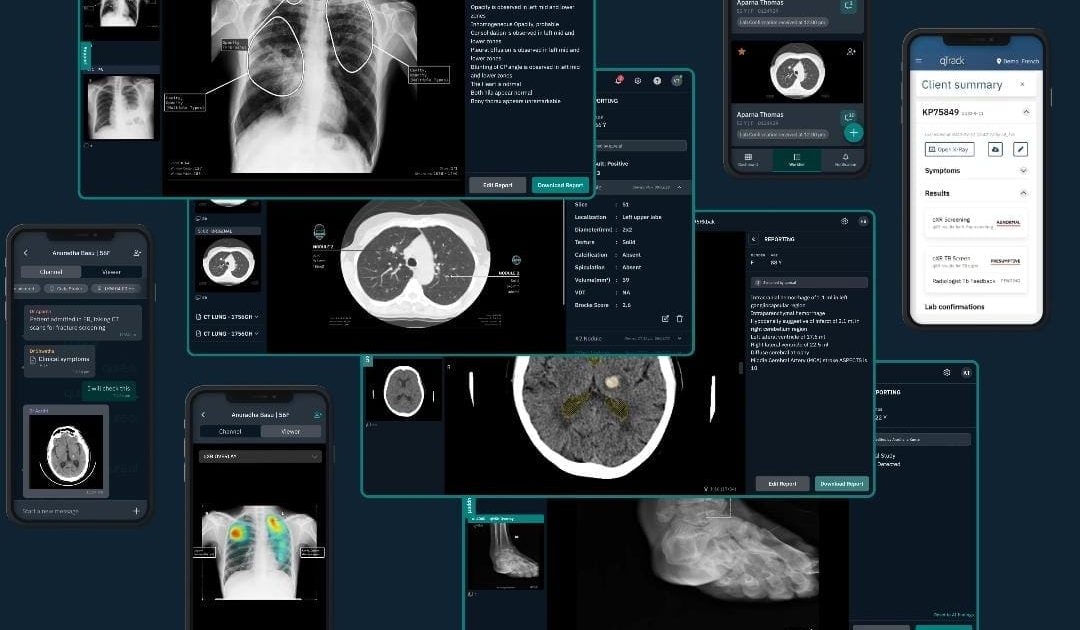The County Government of Nakuru has installed an Artificial Intelligence (AI) system in operations of its Nakuru County Referral and Teaching Hospital (NCRTH) to help identify health trends, anticipate disease outbreaks and optimize resource allocation.
While noting that the future of health care is data-driven, bolstered by analytics and fueled by artificial intelligence (AI) and machine learning (ML), County Executive Committee Member (CECM) for Health, Ms Roselyn Mungai, stated that by leveraging machine learning algorithms, AI systems can swiftly identify patterns and predict diseases, assisting healthcare professionals in making accurate diagnoses and recommending personalized treatment plans.
Ms Mungai indicated that due to scarcity of healthcare professionals in some parts of the devolved unit, AI-enabled technologies can fill the gaps. For instance, she added chatbots and virtual assistants that can take preliminary medical advice and information to patients, reducing the burden on overstretched healthcare facilities.
“Further, remote patient monitoring devices equipped with AI capabilities can track vital signs, detect abnormalities, and promptly alert healthcare providers, ensuring timely interventions and better patient outcomes. Newer AI such as voice-to-text and generative AI tools for summarizing patient data have also proven useful for health workers in the field,” she stated.
Speaking at the County Headquarters, the CECM observed that adoption of AI and other evolving technologies in healthcare access was ushering in a new era of innovation, efficiency, and accessibility, revolutionizing healthcare services for the people of Africa and beyond.
According to Ms Mungai, the initiative has been rolled out with support from the National Tuberculosis program, African Medical and Research Foundation (AMREF) and Qure.ai, an AI solution provider.
The CECM indicated that the technology will provide automated interpretation of radiology exams including X-rays, Computed Tomography (CT) Scans and Ultrasounds scans enabling faster diagnosis and timely treatment.
“The project aligns perfectly with Governor Susan Kihika’s manifesto to digitize healthcare and advance technology for improved quality of healthcare services in the county. Radiologists, radiographers, and Clinical Officers from the Chest clinic and Outpatient Department have all been trained and sensitized on the use of this innovative technology,” noted the CECM.
Ms Mungai indicated that the technology will revolutionize tuberculosis diagnosis by improving workload management, reducing turnaround time for patients, and enhancing the accuracy and speed of early diagnosis.
“Nakuru County is among the first of the eight facilities nationwide that has initiated this program of Digital Chest X-ray (DCXR) with AI, introducing the new diagnostic tools in accordance with World Health Organization (WHO) recommendations, under the TB Program, supported by USAID through the STOP TB Partnership,” she stated.
Ms Mungai added “In Kenya, the integration of AI signifies not just technological advancement but a transformative leap forward. With its ranking as Africa’s fifth most AI-ready nation, as per Oxford Insights’ 2022 report, Kenya is poised to leverage AI in reshaping its public services and beyond. The effective utilization of AI in healthcare is intrinsically linked to the vast amounts of data being generated every day,”
According to the CECM, by harnessing big data and analytics, healthcare providers can gain valuable insights into disease patterns, epidemiology, and treatment effectiveness, allowing for evidence-based decision-making.
AI is the simulation of human processes by machines, especially computers, through the use of captured data. The objective of AI is to make computer systems simulate human thinking in solving complex problems.
In healthcare, AI has been credited for improving clinical workflows while simultaneously contributing relief and prevention of burnout. It can also help pinpoint the number of hospital-acquired infections to patients.
In the health care sector AI can be deployed for diagnosis and clinical care, such as responding to patients’ written queries, Patient-guided use, such as for investigating symptoms and treatment and clerical and administrative tasks, such as documenting and summarizing patient visits within electronic health records.
The technology is also used for medical and nursing education, including providing trainees with simulated patient encounters and scientific research and drug development, including identifying new compounds.
Ms Mungai observed that with its ability to analyze vast amounts of medical data and generate valuable insights, AI is revolutionizing diagnostics, treatment, and healthcare management, including analyzing X-rays, ultrasounds and Magnetic Resonance Imaging (MRI).
She further disclosed that through public-private partnerships County Health care facilities will benefit with expertise in latest digital technology tools that will enhance the quality and efficiency of the health care services provision.
“The implementation of these technologies is also expected to streamline operations, thereby reducing the financial burden to the patients and easing the workload of the healthcare professionals. Further, the partnership will explore setting up an exchange program that will offer physicians the opportunity to be trained on the latest medical technologies,” stated Ms Mungai.
The CECM indicated that while the integration of AI and emerging technologies in healthcare brings forth numerous benefits, it was crucial to address ethical considerations and overcome challenges.
He affirmed that privacy and data security must be prioritized to ensure the confidentiality of patients’ sensitive information.
By Esther Mwangi and Frankline Mugambi





